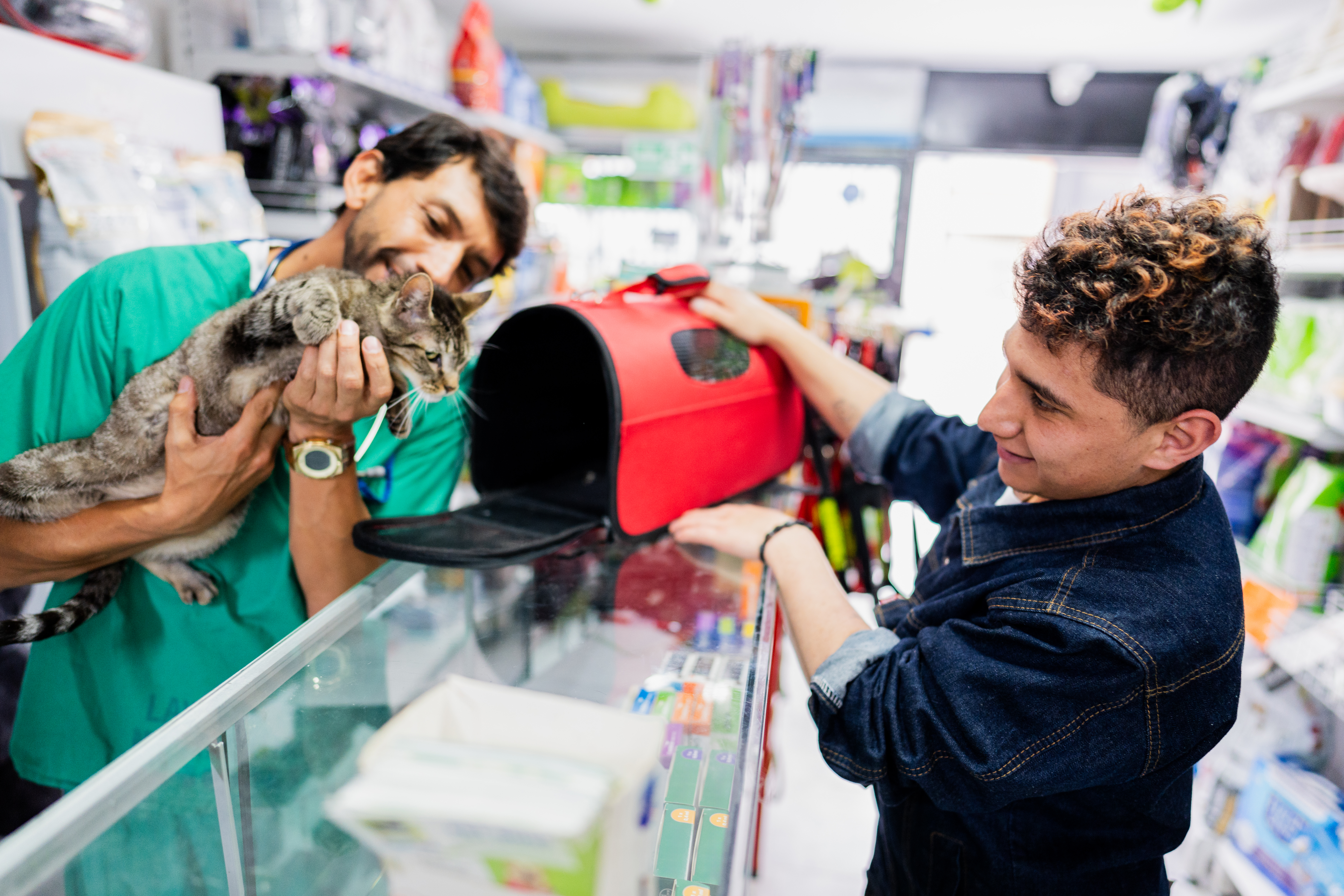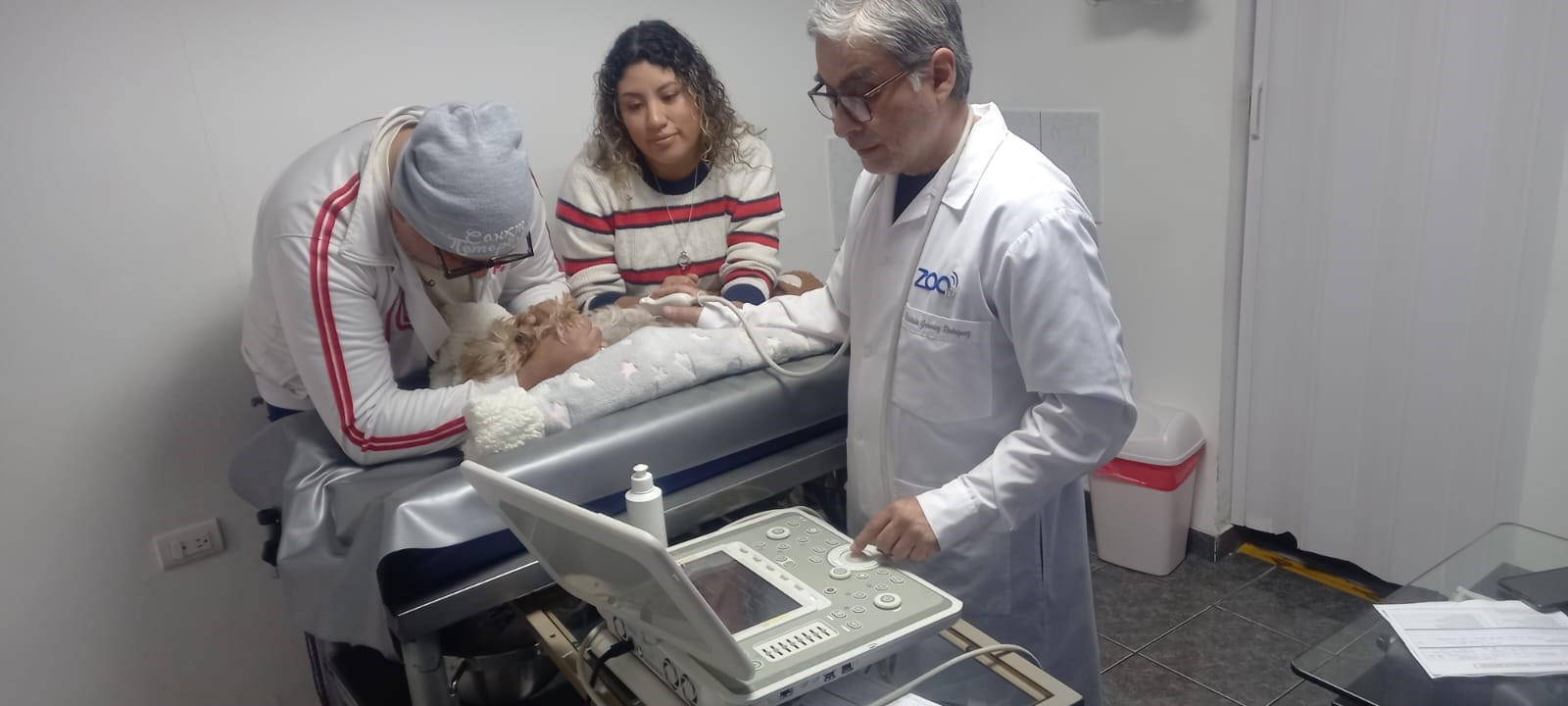Antimicrobials, including antibiotics, have been essential in improving the health and prolonging the lives of animals and people. However, their inappropriate use is causing many of these drugs to lose their effectiveness.
Antimicrobial resistance (AMR) is now one of the greatest global challenges. In the field of companion animals, it can affect health, limit treatment options and compromise the welfare of dogs, cats and other species with which we live. As these animals live in our homes and in close contact with people, the responsible use of antibiotics is essential for their health, as well as to prevent the transmission of resistant pathogens between animals and humans.
During the 50th Congress of the World Small Animal Veterinary Association (WSAVA) held in Rio de Janeiro, Brazil, the World Organisation for Animal Health (WOAH) spoke with professionals in the sector to learn first-hand how they are addressing AMR in their daily practice in the Americas region.
By using antimicrobials responsibly in companion animals, we can also protect the health of our families and ensure that these medicines remain effective in the future.
At the emergency centre where I work, we treat many cases of injuries. Whenever possible, we perform antibiograms, but there are more and more patients who are difficult to treat. Some owners discontinue treatment prematurely or self-medicate other animals with the same symptoms, which exacerbates the problem. We must be aware that if we do not use antimicrobials rationally, the consequences will soon arrive and directly affect our companion animals.
GABRIELA CAUICH DZUL, MEXICO
I regularly encounter cases of AMR in my daily practice. The important thing is to raise awareness among pet owners so that they do not self-medicate their animals. Not all patients are the same, nor do they respond to the same treatment. The responsibility of companion animal owners is key, because this has an impact on animal health and on everyone’s health.
DANITSA BAHAMONDES, CHILE
I carry out awareness-raising activities with owners: I give talks for them and, from time to time, I organise meetings at my clinic with vets from other places so that they can share their experiences on topics such as AMR or immunological therapies. For example, we always explain that diarrhoea is not necessarily treated with metronidazole, an antibiotic, but with probiotics and a proper diet. That’s what I try to teach them. I also routinely perform antibiograms. In some cases, such as when an animal has a nasal discharge that does not respond to any conventional treatment, the owner tells me, ‘I already used amoxicillin’ or ‘I already used streptomycin.’ Then I ask how long they did it, and they usually answer, ‘five days.’ That’s when I point out that that’s exactly the problem: treatments are interrupted prematurely. Often, the challenge is with owners who have several animals. I always tell them: if your child gets sick, you take them to the doctor and follow their instructions; you don’t buy antibiotics at random. So why doesn’t your animal deserve the same professional care? It’s a question we should all ask ourselves.
TAIS FRAZÃO, BRAZIL
I am increasingly faced with conditions where antibiotics no longer work. Many owners think that if antibiotics are not prescribed, nothing is being done, and that needs to be explained. Antibiotics are not always the answer. Consulting a specialist and using them correctly is essential.
LUCIA PRIETO AND AGUSTINA RODRIGUEZ, ARGENTINA
Doctors Lucia Prieto and Agustina Rodriguez have been working as veterinarians for four years, providing home care mainly to cats in Córdoba, Argentina.
It is common for owners to prefer to administer antibiotics immediately before making a proper diagnosis. It is essential to educate them so that they understand why they cannot be prescribed without evidence. I always explain the importance of confirming the diagnosis before using antibiotics, to avoid resistance and ensure that we choose the right one. I prefer to try first by improving nutrition, probiotics or other alternatives. Education is key.
MARIA ISABEL ALBERS, UNITED STATES
Antibiotics are an essential tool for fighting infections, but responsible use is key. Monitoring each treatment allows us to detect if an antibiotic is no longer effective. I always remind companion animal owners that the doses for pets are not the same as for humans, and that following the schedule and duration of treatment is essential to avoid relapses. When instructions are not followed, it not only complicates my work, but also puts the animals’ health at risk. Vaccination should also be a priority as a preventive tool for diseases that would otherwise require antibiotics.
GEMIMA PEREIRA DE OLIVEIRA, BRAZIL
Dr Ricardo Grandez Rodriguez has been working as a veterinarian with companion animals for 35 years, providing clinical care and ultrasound examination in Lima, Peru.
New antimicrobials are used indiscriminately and lose their effectiveness quickly. Resistance forces us to change medications and makes it difficult to choose the right one. We explain to companion animal owners that they must complete the treatment, respect the dosage and not repeat prescriptions on their own. Many discontinue treatment when they see improvement, which leads to relapses and resistance. In diseases such as leptospirosis or ehrlichiosis, antibiotics are vital, but when vaccination is not used for prevention, we end up treating infections that could have been avoided.
MARIANO MENDOZA and RICARDO GRANDEZ RODRIGUEZ, PERU
The testimonies of these professionals reflect a shared reality: antimicrobial resistance is already present in everyday veterinary practice. Promoting the responsible use of antibiotics, strengthening education for companion animal owners and focusing on prevention – through vaccination, hygiene and animal health – are essential steps to protect the health of animals, people and the planet.
More information:


